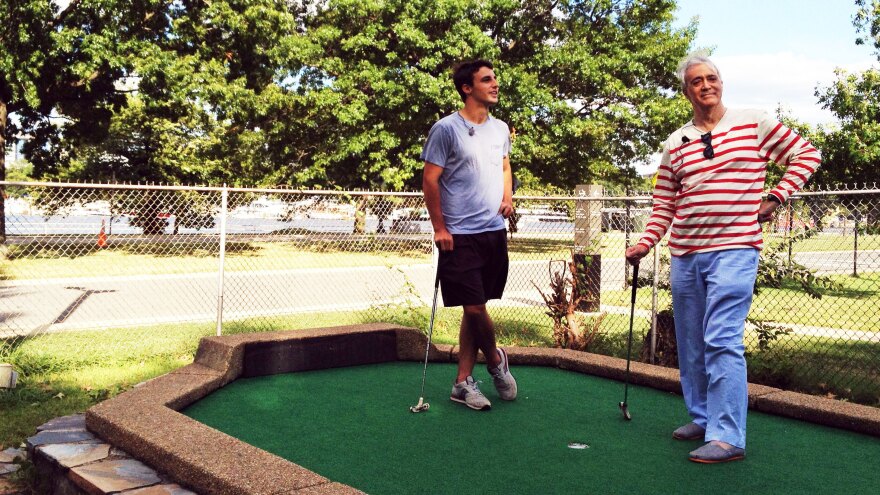When Dylan Dethier graduated from high school a few years ago, he didn't go on to the local college, join the Army or hitchhike cross-country. He hit golf courses, on a trip across America to play a round of golf in each of the Lower 48 states.
He played the posh course at Pebble Beach, yes; but mostly public courses across the country, including one in hard-hit Flint, Mich., another in North Dakota and one in a corner of Alabama. Over the course of a year he slept with an ax under his car seat, lost his virtue, and looked at America from green to shining green.
And he's written a book about that year: 18 in America: A Young Golfer's Journey to Find the Essence of the Game.
Over the course of his trip, Dethier saw a game with regional accents — golf looked a little different everywhere it was played. There were Western courses with laid-back club pros who drove pickup trucks and wore denim instead of argyle. In Minnesota, he sprinted through a soggy, snow-soaked course to get his 18 holes in before he froze solid.
Dethier tells Scott Simon (during a round of golf, of course), about playing golf in Flint with two African-American men who'd once worked for General Motors: "There were a number of factors that made it different than the golf that my parents were afraid of me falling in love with, and that made it appealing, and these guys were great."
Interview Highlights
On his most beautiful hole of golf
"The hole that comes to mind is the 15th hole at Bully Pulpit golf course in Medora, N.D., which is really, it's in the heart of the Badlands, and they leave golf carts for you at the base of this hill, and you drive up and up and up, and all of a sudden, you're on top of the state, it feels like. And you look around in every direction and there are these skeletons of mountains. And then you kind of look down, and you notice that there's this little mouse pad of a green, about 160 yards away, that you're supposed to hit onto while the wind is whipping like 50 miles per hour across your face. And that was just a moment where I just stood there and thought, 'Wow, this game is pretty cool, and that it's brought me here is so cool.' "
On why people play golf
"It's a game of possibility. So even in these places where people seemed to have lost hope, there was this possibility of things getting better the next hole, or the next day, because golf has this way of bringing people back. You know, you can play the worst round of your life, and then there's always this two-part reaction, and the first one is like, 'God, I'm never playing this game again.' And then the second one that comes right after that is, 'Gee, we gotta get back out there tomorrow. We gotta right the wrongs that we committed today. I can figure it out if I just change this one thing.' "
Copyright 2023 NPR. To see more, visit https://www.npr.org.


